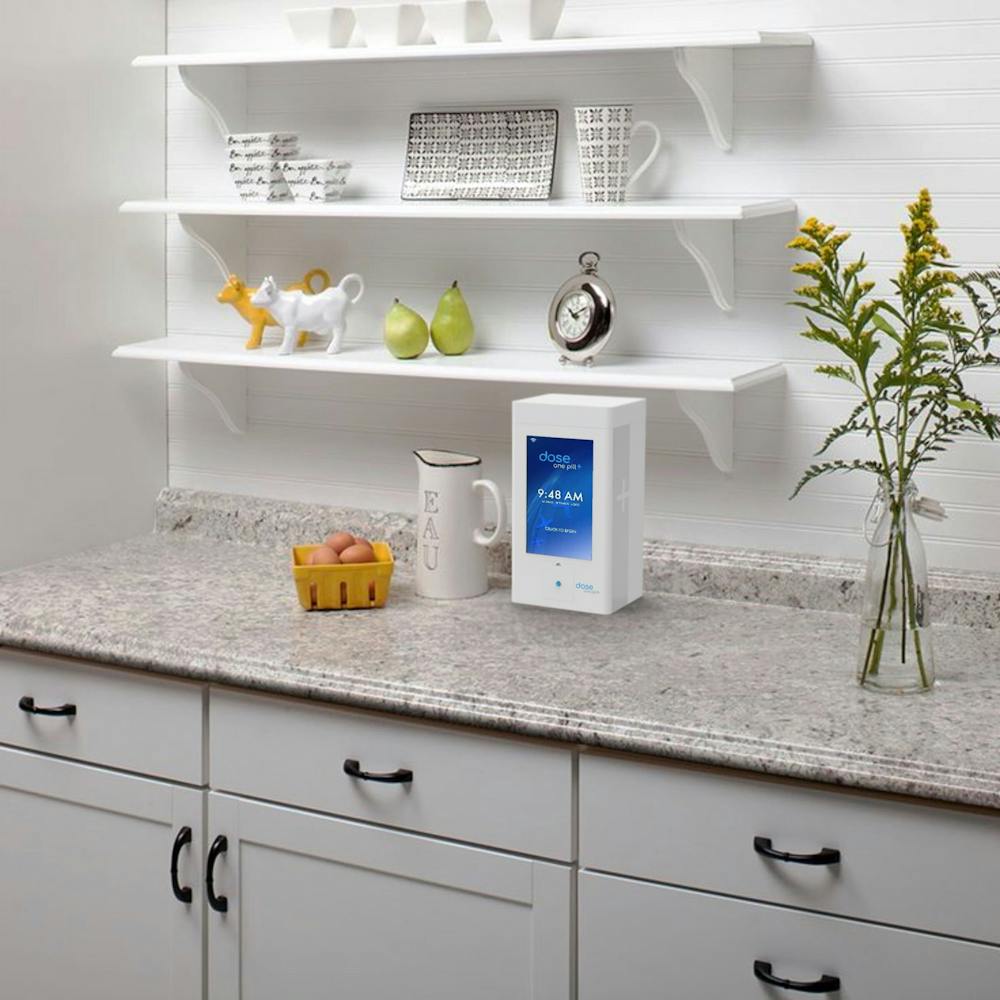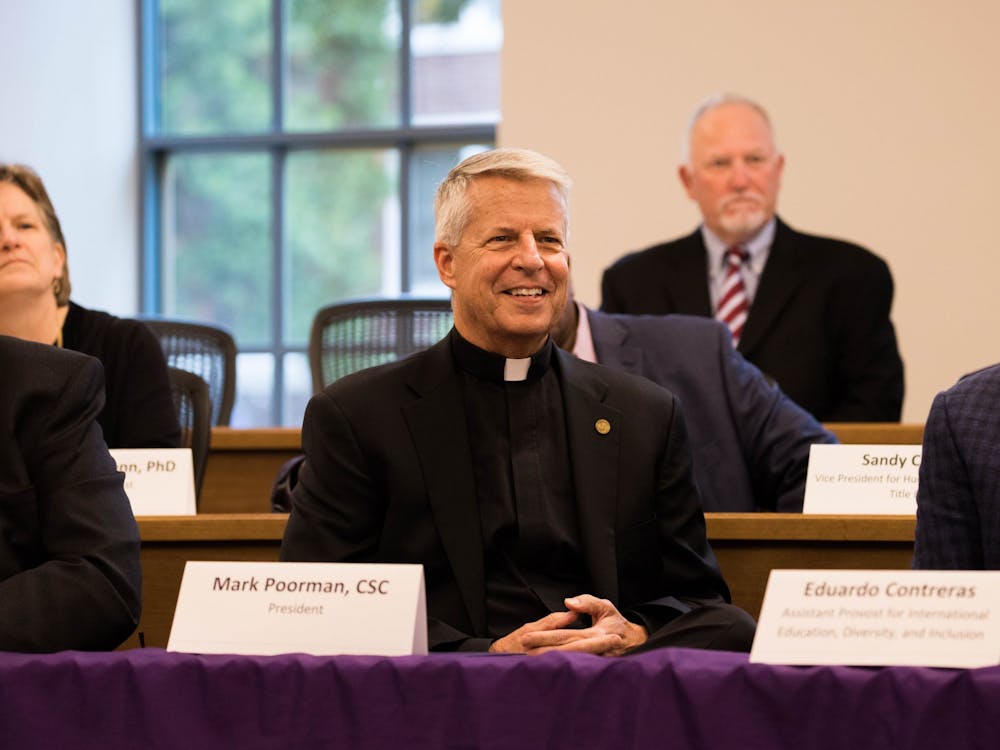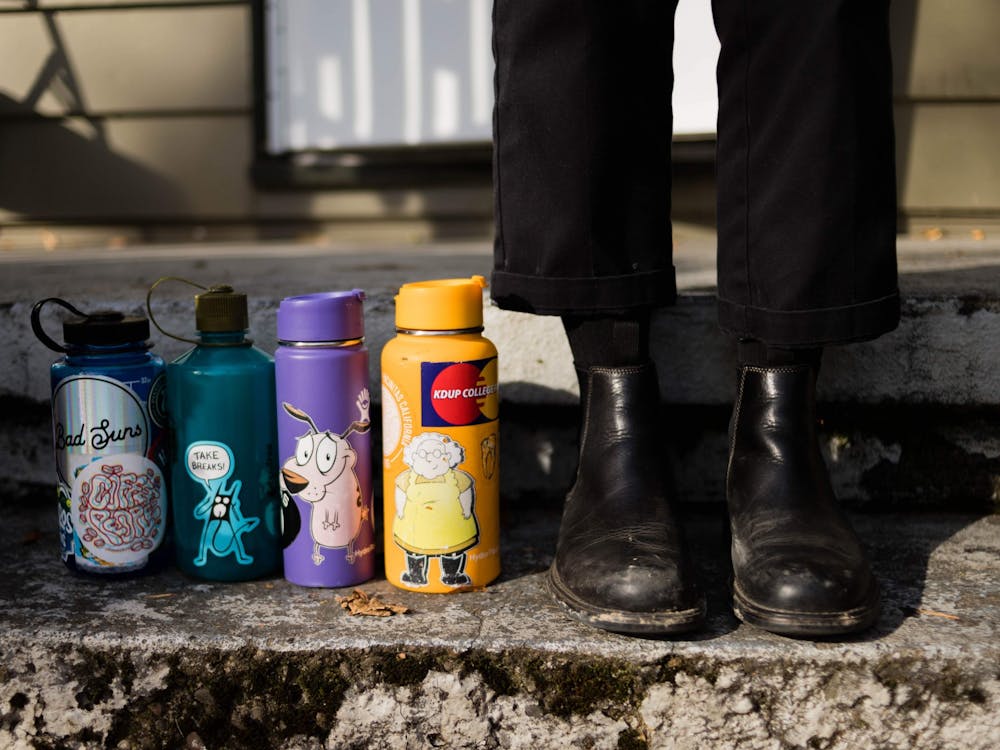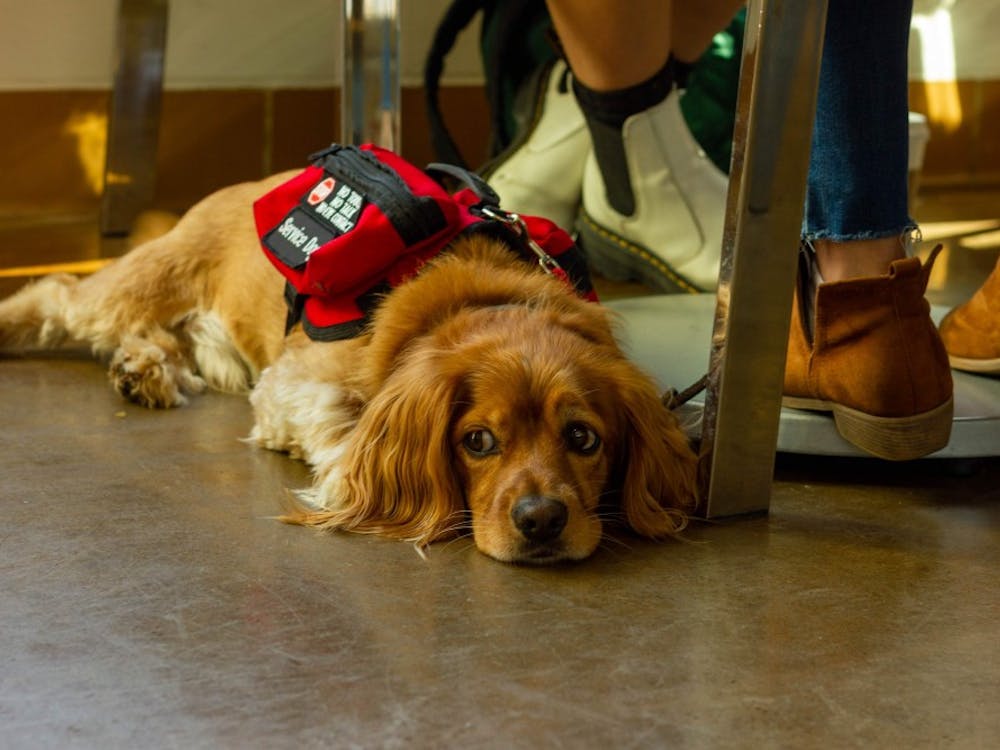Last year, when then-junior Ryan Jarvis joined the Entrepreneur Scholars program, his first business idea was to create a social media website. While Jarvis toyed around with this thought for a while, he ultimately decided that he wanted his entrepreneurial project to be something more impactful. One day, while watching an episode of The Patriot Act with Hasan Minhaj about the opioid crisis, Jarvis was made aware of the epidemic’s severity. He began brainstorming the beginnings of what would become his business venture Dose.
“When I was a teenager, I was taking care of my grandma a lot as she was going through dialysis and medication was definitely a really big deal,” Jarvis said. “She had this giant supply of medication that she had to take every day and a lot of times it could be very frustrating and difficult to keep it organized.”
Because of both Jarvis’ personal experience and his knowledge of the scale of the opioid crisis, he decided to create a product that would help both organize medication and lessen the chances of it being abused.
Now a senior, Jarvis has invested significant time and resources into Dose and is preparing to bring his idea to life. Dose is a pill dispenser that helps people monitor their medication and ensure that the medication is not being abused. Dose recently took second place representing UP at the statewide Invent Oregon Challenge, giving Jarvis’ product additional credibility in the business world.
“For people who are scared of addiction for both themselves and others, Dose puts provisions in place to make sure that someone’s medication does not get misused,” Jarvis said. “Dose only allows one pill to be taken at a time and significantly reduces the chances of medication being abused.”
The Dose Home Station, which is Dose’s primary product, works by scanning a code on someone’s pill bottle and then using an algorithm to schedule all of a person’s medication at the appropriate times. Users can also use a mobile app to schedule the times that Dose will give them their medication. In addition to the Home Station, there is a portable device meant for taking medication on the go.
While Dose is focused on helping reduce the abuse of opioids and other medications, it is also helpful for people who have to take a lot of different medications on a daily basis. Jarvis saw how difficult this was for people like his grandma. Dose helps to organize and manage various types of medication at once to make life easier for people in this position.
While Dose is still in its developmental stages, Jarvis now has enough of a foundation to participate in different entrepreneurial competitions. Back in April, Jarvis won UP’s Pilot Venture Challenge, receiving a $1500 grant and the opportunity to represent UP at the Invent Oregon Challenge, a competition for collegiate level entrepreneurs across the state. Jarvis placed second in Invent Oregon competition and received a $7500 grant.
“Because I placed second at Invent Oregon, I definitely have a lot more credibility behind my product,” Jarvis said. “It means that when I’m both entering other competitions and talking to investors, I will be taken a lot more seriously.”
Jarvis plans to use his prize money to further develop his product and find ways to make progress without spending it all at once. Because the device is dependent on technology, he will try to focus on more technical parts of its development.
“I really want to make that money last as long as I can and hopefully eventually put some of it towards a patent,” Jarvis said. “I also really want to start working towards app development, which will be something I can get started on once I have the funding.”
For young entrepreneurs, finding funding and making connections are some of the most crucial parts of a product’s development. Professor Kay Molkentin, who works with students in the E-Scholars program, stresses the importance of teaching students practical skills that will help them both in competitions and the real world.
“When you’re thinking about creating a product, you have to really focus on what problems people think are important enough that they would pay to have them solved,” Molkentin said. “Both the classes at UP and these competitions really help these students think through all the different things that will really shape their individual ideas into worthwhile projects.”
While at this stage, Jarvis’ products will require substantial development to be completed. The money that he was awarded from the competitions will help him take the steps that he needs to get Dose operational.
Ajay Davis is a reporter for The Beacon. He can be reached at davisaj22@up.edu.









